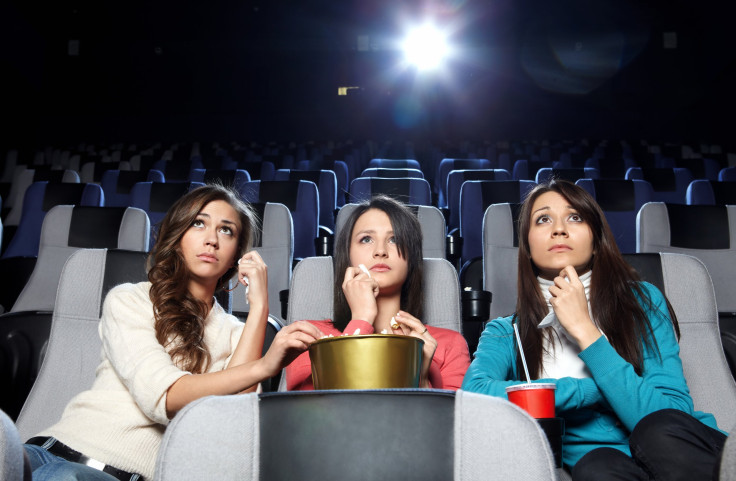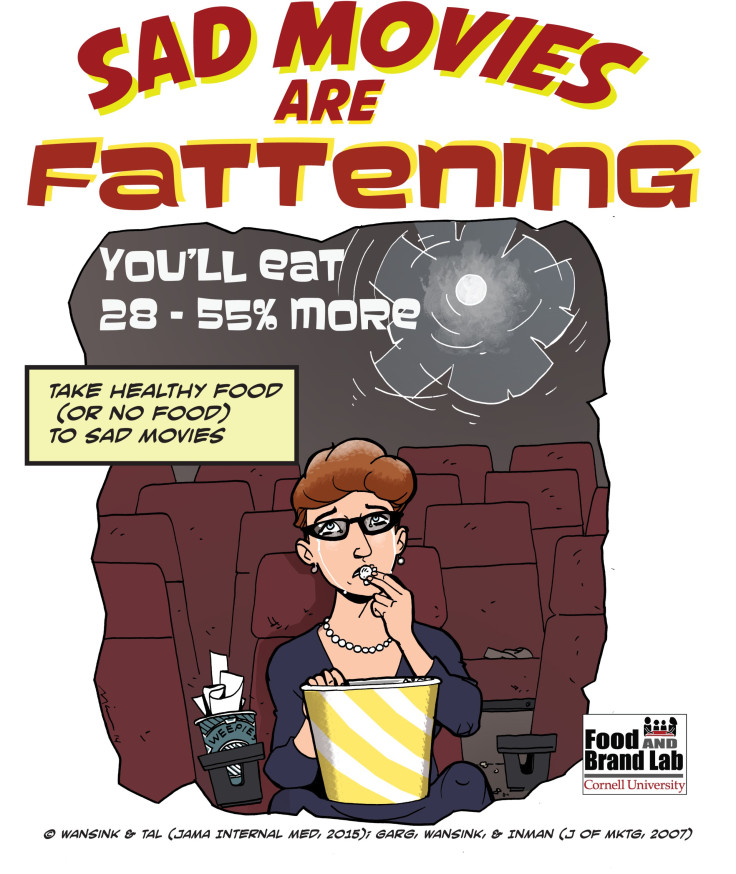Sad Movies Fuel Obesity And Emotional Eating: Melancholy Films Makes You Devour More Junk Food Than Comedies

After a breakup, you may find yourself lying supine on the couch nursing a pint of chocolate ice cream. Scientists have also found you’re likely to do something similar while watching sad films: Melancholy movies spur us to consume more junk food than comedies.
Emotional eating is different from eating when you’re hungry; it’s often triggered by depression, stress, or momentary sadness, and makes you want to eat comfort foods high in salt, fat, and sugar. This is one of the reasons why obesity is often linked to mental illnesses like depression or anxiety.
In a study carried out by Cornell University Food and Brand Lab, and published in JAMA Internal Medicine, researchers had a group of office workers munch on snacks while watching Love Story (a weepy movie) and Sweet Home Alabama (which is more lighthearted and funny). They found that watching Love Story made the participants eat 28 percent more popcorn than they did while watching Sweet Home Alabama.
The researchers also examined the popcorn-eating habits of moviegoers over a Thanksgiving weekend in seven cities in the U.S. They found that people who bought popcorn and watched a sad movie (Solaris) ate an average of 55 percent more popcorn than those who watched My Big Fat Greek Wedding.

A 2014 study out of the Cornell Food and Brand Lab found that fast-paced action movies also caused people to eat more. In the study, students snacked on M&Ms, cookies, carrots and grapes while they watched a segment of the action movie The Island and a segment of the talk show, the Charlie Rose Show. Participants watching The Island ate almost twice as many snacks compared to those watching the Charlie Rose Show, the authors found.
“With action movies, people seem to eat to the pace of the movie,” Aner Tal, an author of the study, said. “But movies can also generate emotional eating, and people may eat to compensate for sadness.”
Mindless Eating For The Better
But there’s hope. The results of the two studies come with both negative and positive news: While sad or action flicks may lead to binge-eating, you can turn it around for the better by placing bowls of fruit or veggies in front of you when you’re about to sit down for the movie.
“Sad movies also lead people to eat more of any healthy food that’s in front of them,” said Brian Wansink, lead author of the study. “It’s a quick and mindless way of getting more fruit or veggies into your diet.”
Wansink is author of Slim by Design: Mindless Eating Solutions for Everyday Life, which argues that designing your food intake based on what you surround yourself with has more of an impact on weight loss than forcing yourself to stay away from food completely.
“Keep snacks out of arm's reach, ideally leave them in the kitchen, and only bring to the couch what you intend to eat” like vegetables, Wansink suggests. “It’s easier to become slim by design than slim by willpower.”
Source: Wansink B, Tal A. Television Watching and Effects on Food Intake: Distress vs Eustress, In Reply. JAMA Internal Medicine. 2015.



























